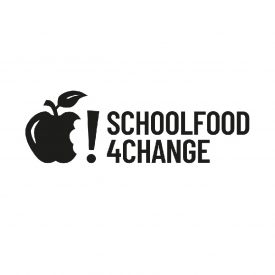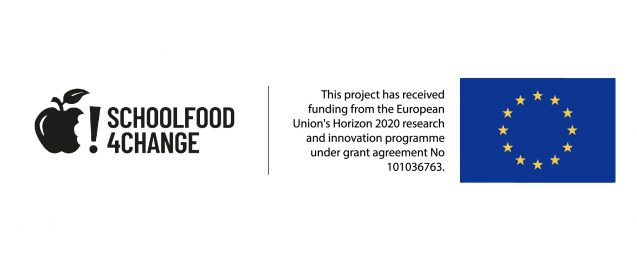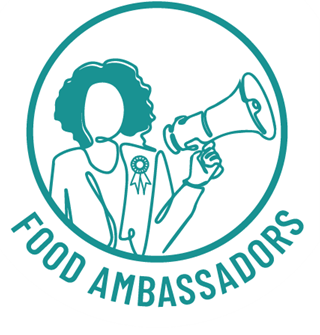
SF4C is an initiative aiming to promote sustainable and healthy diets on a large scale across the European Union. It plans to achieve this by directly influencing over 3,000 schools and impacting the lives of 600,000 school children in 12 EU countries. SF4C believes that schools and children, spanning ages 0-18, can serve as catalysts for systemic change, influencing the dietary habits of all EU citizens. The initiative is supported by 33 partners, primarily governmental entities responsible for sustainable healthy school meals, including pioneers from various EU countries. The project focuses on integrating sustainable food practices, involving school chefs and urban food enablers, and engaging with policymakers. The overarching goal is to make meaningful contributions to achieving the goals of the EU’s EU Farm to Fork Strategy, the Sustainable Development Goals, and the well-being of children through access to nutritious food. The project emphasizes collaboration with local and national stakeholders, supports climate targets, and aims to establish a minimum standard for sustainable food procurement. Efforts also include communication and dissemination activities to raise awareness and engage with global initiatives.
The SF4C project wants to bring systemic solutions to systemic problems around food and school food sourced from land, inland water, and sea. By applying a triple impact approach, and empowering vulnerable children and young people (0-18 years of age) in and around schools, the project will reach all EU citizens to achieve an impactful shift to sustainable healthy diets.
SF4C has five specific objectives (SO):
- SO1: To innovate and roll out sustainable healthy food procurement, sourced from land, inland water and sea, in line with the EU Farm to Fork Strategy and the SDGs.
- SO2: Through innovative planetary health diets & cooking linked to the identity of the territory, train and empower cooks and urban food enablers in the cities;
- SO3: To ensure an enabling educational environment through the innovative whole school food approach which is a method about achieving a healthy food culture in and around schools, contributing to community-wide whole systems change, and impacting on education, sustainability, inequalities, communities and health
- SO4: To assess the SF4C impact, demonstrate real-life delivery (business case), particularly on health and behavioral change of vulnerable children, and prove that it can be cost-effective
- SO5: To seek impact for all EU citizens, demonstrate swift EU replicability, also beyond schools, and engage with EC Services and projects on increased Farm to Fork impact toward 2030

Empowering Food Enablers - The Dordogne Study Case
The Dordogne project, a pioneering initiative aimed at transforming school catering by providing 100% organic, local, and homemade meals, serves as a powerful model within the “Schools Food 4 Change” (SF4C) project framework. This ambitious transformation, led by the Department of Dordogne, is grounded in core values shared by the SF4C initiative: environmental sustainability, social equity, and the promotion of healthy, nutritious food for students. By aligning with SF4C’s mission to support climate and healthy conscious practices in schools, the Dordogne project showcases how local food systems can simultaneously benefit communities, local economies, and the environment.
The decision to highlight the Dordogne model within SF4C stems from its comprehensive approach to sustainable food procurement and environmental stewardship. With a strong emphasis on local sourcing, organic farming, and reducing carbon emissions associated with food transport, Dordogne’s initiative offers valuable insights into practical implementation. The project not only illustrates how to establish a reliable network of local suppliers but also demonstrates the economic benefits that such an approach can provide to farmers and communities. These elements are central to SF4C’s vision of empowering schools to adopt sustainable, climate-friendly practices and making these benefits accessible and scalable for project partners across regions.
The Dordogne initiative’s success, particularly in achieving cost neutrality while raising food quality, presents an actionable blueprint for other regions aiming to implement similar changes. By showcasing this model, SF4C seeks to equip partner projects with proven strategies, from engaging community stakeholders to fostering sustainable food systems that prioritize both student health and ecological impact. The Dordogne project, therefore, not only aligns with SF4C’s goals but also stands as a powerful catalyst, offering a replicable, inspiring framework that can accelerate sustainable change across diverse educational environments.
Below you will find the link to a ‘Prezy‘ which is an interactive document that will you give access to all the interviews of all the stakeholders of the Dordogne project. The document and interviews are available in both French and English. To help you navigate in Prezy we prepared a little instruction manual, don’t hesitate to have a look if you have any doubts.
The Eating City Ambassadors for SF4C

The roles and responsibilities of the Food Ambassadors within the SchoolFood4Change (SF4C) project, as defined by the Grant Agreement (GA) in Work Package 4 (WP4). The primary aim of WP4 is to implement local training initiatives to promote sustainable and healthy eating practices across various cities. Task 4.1 focuses on identifying and selecting trainers, including 24 cooks, 24 urban food enablers, and 12 Food Ambassadors—one for each participating country.
These Food Ambassadors, will provide critical support during the training phases and act as key disseminators of the project’s outcomes.
Ambassadors will work closely with National Lead Partners (NLPs) to tailor their involvement according to local needs, helping to foster the project’s goals and create a lasting impact on sustainable food practices in schools and communities.
Find our ambassadors brochure here
Food Ambassadors list:
Marina Castillo, Spain
“I am Marina Castillo Hernández from Valencia, Spain. I studied Food Science and Technology at the Polytechnic University of Valencia and earned a Master’s in Nutrition and Food Safety from the University of Murcia. Currently serving as Knowledge Manager at the World Sustainable Urban Food Center of Valencia (CEMAS). At CEMAS, an initiative of the City Council of Valencia, my work focuses on identifying, classifying, and sharing knowledge on urban food and nutrition challenges. Passionate about building healthier, sustainable food systems, I believe in advocating for small-scale producers and connecting all food chain actors to create meaningful change together.”
Giulia Caddeo, Italy
“A lawyer and researcher at the University of Turin’s Law Department, she specializes in public procurement with a focus on green public procurement in collective catering, a topic she explored during an internship at the Municipality of Turin. With extensive experience in European-funded projects, particularly in sustainability and food systems, she actively participates in various initiatives with Eating City, including the Summer Campus. Her work combines legal expertise with a commitment to advancing sustainable practices within the food sector.”
Amelie Maas, Germany
“I’m a Nutritionist specialized in Sustainable Food Systems, holding a B.Sc. in Health & Nutrition from Germany and an M.Sc. in Sustainable Food Systems (European Joint Degree). My mission is to make healthy, sustainable diets the most convenient and appealing choice. With a focus on product development and innovative nutrition concepts, I’m especially passionate about highlighting the benefits of beans for health, the environment, and flavor. I deeply value intercultural exchange and cooperation, having participated in several Eating City Summer Campus events. Let’s work together to bring positive changes to the food landscape!”
Josephine Fontain Bergmann Madsen, Danmark
“I am Josefine Fontain Bergmann Madsen from Denmark. Both at school and home, I’ve engaged deeply with the environmental crisis, especially its connection to food systems. This summer, I graduated from the Danish “gymnasium,” where I completed a thesis combining biology and social studies to explore how individual lifestyle changes can positively impact the climate. In 2023, I joined the Eating City Summer Campus, where I expanded my understanding of sustainable practices and shared insights with others passionate about food and sustainability. My goal is to inspire meaningful shifts in personal habits to contribute to a healthier planet.”
Brigita Tool, Estonia
“Brigita, from Estonia, is part of the Sustainable Cities and Resilient Communities unit in SEI Tallinn, with experience in sustainable food and meat consumption research. She holds a bachelor’s in Environmental Protection and a master’s in Environmental Management and Policy from the Estonian University of Life Sciences. Her master’s thesis explored youth motivations in reducing meat consumption and reviewed the Estonian Meat Guide. Previously, she worked on Eat4Change, a project mobilizing youth for sustainable diets. Brigita is passionate about sustainable food, LULUCF, carbon removal, urban planning, and systems thinking to drive environmental change and a green transition.”
Hanne Van Nuffel, Belgium
“With a Bachelor’s in Nutrition and Dietetics and a Master’s in Health Promotion from Ghent University, she began her career at the Association of Flemish Cities and Municipalities (VVSG), representing local authorities on healthy, sustainable nutrition in childcare. She founded a dietetics group practice, guiding families toward healthier lifestyles, and taught Nutrition and Dietetics at Hogeschool Gent. Recently, as the project coordinator for SchoolFood4change in Ghent, she developed initiatives like Goodfood@school coaching and farm-to-school programs. In her free time, she plays Ultimate Frisbee, valuing sportsmanship and respect, and is also a budding beekeeper.”
Catarina Vasconcelos, Portugal
“I’m Catarina Vasconcelos from Portugal, with a BSc in Nutrition and Dietetics, a postgraduate qualification in Pediatric Nutrition, and an MSc in Food Policy. Currently, I work at Food4Sustainability CoLAB, where I manage projects related to nutrition, public health, sustainable consumption, and food policy. Passionate about the profound connection between food and its effects on health, environment, culture, economy, and society, I aim to foster more sustainable food systems. As an active member of Eating City, I’ve participated in several Summer Campus events, which have enriched my understanding and commitment to sustainable food practices.”
Magdalena Hofer, Austria
“Sustainability and environmental protection are core to my work and values. At Danachda, I develop and lead educational projects on sustainability and nutrition, including contributions to the European SchoolFood4Change initiative. With a background in STEM and gender studies, I bring a creative and structured approach to teaching children about environmental responsibility. My goal is to inspire young minds to think critically, form independent opinions, and understand their role in shaping a sustainable future. As a Food Ambassador, I aim to raise awareness about sustainable food culture in schools and to amplify the SchoolFood4Change project’s impact across Europe.”
Fruzsina Farkas, Hungary (Video coming soon)

“Fruzsina, known as The Green Sommelier on social media, from Budapest, Hungary. As an entrepreneur and health-conscious advocate, I focus on sustainable practices, specializing in fermented, low-to-no-alcohol drinks. My mission is to inspire individuals and businesses toward healthier, sustainable choices through workshops, educational content, and community-building efforts. I hold a BA in International Relations from Versailles, France, and previously worked as a sommelier in Budapest, emphasizing local, sustainable products. For 15 years, I’ve organized sustainability-focused summer camps for children, serving as camp chef, sourcing ingredients through foraging. I value the Eating City project for its community-building and collaborative impact.”
Anetta Vaculíková, Slovakia
“Anetta, with a background in Business Administration, an MBA, and studies in International and Diplomatic Affairs, began her career in marketing and gastronomy in 2008. In 2014, she co-founded FOOD HUB, a catering and cooking school, and established a civic association for real food education, becoming Jamie Oliver’s Food Revolution ambassador. After 2017, she focused on school food education, founding Skutočne zdravá škola. Anetta is active in Slow Food Pressburg, organizes the Degustorium festival on food sustainability, and contributes to AgroKruh, a CSA initiative. She has also published on healthy food topics and participated in Erasmus+ and H2020 projects.”
Aurélie Ravaud, France
“Aurélie, a French dietician, is passionate about well-being around food, both for its health aspect and for its social, cultural, creative and happiness it generates. As an expert in nutrition, she guides her patients towards a healthy and sustainable lifestyle, combining the pleasure of eating and well-being. Enriching her practice, she also trained in traditional Chinese medicine, which allows her to adopt a holistic approach to health. Convinced that harmony between body and mind comes through an adapted diet and natural care, she puts her know-how at the service of humans to help them regain balance and vitality.”
Martina Hruskova, Czech Republic (Video coming soon)

“Martina is a Public and Social Policy PhD candidate at Charles University, focusing on sustainable public procurement. Her dissertation research examines the real-world impacts of sustainable public food procurement on people and the planet, blending academic research with practical solutions to support effective policies. As an ambassador for the Eating City project under SchoolFood4Change, Martina wants to use her expertise to foster collaboration and promote fresh ideas for innovation in school food systems. She is passionate about creating greener and fairer policies and helping communities thrive while caring for the environment.”
Alexandra Apelsten, Sweden (Video coming soon)

“I am Alexandra Apelsten from Lysekil, Sweden. With a background in marine biology, culinary arts, I have combined my passion for sustainable food and creativity into my career. Currently working as a social media manager, content creator, and recipe developer, from myself and other companies, I focus on promoting sustainable food practices, including innovative uses of blue foods and locally grown ingredients. Passionate about building a healthier, more sustainable food system, I aim to inspire others through engaging content and collaborations that connect producers, consumers, and businesses.”
Find our latest project news
SF4C Ambassadors Meeting in Dordogne, 27th to 29th November 2024
In November 2024, our SF4C Ambassadors gathered for 3 days in Dordogne to prepare country-specific contributions for SchoolFood4Change. Here you can read the agenda of these 3 days.
National Policy Dialogue, September 4th, 2024
In September 2024, Eating City organised a meeting gathering approximately 25 French stakeholders, both in person and online, at the Charles Léopold Mayer Foundation in Paris. This event was organised as part of the European project SchoolFood4Change (SF4C), aimed at addressing key challenges in school food policies and promoting a shift toward healthier and more sustainable school meals. The dialogue provided a unique opportunity to discuss the evolution of school food policies in France and Europe, particularly in a context of increasing concerns regarding environmental and public health issues.
Read the reports in english and french.
World Food Forum FAO, October 2023
One of the most defining moments of the Ambassadors journey took place in October 2023 at the World Food Forum organized by the Food and Agriculture Organization (FAO) in Rome.
Here, SF4C ambassadors stepped onto the global stage. On October 17, Ilsa Phillips from IFOAM delivered the “SchoolFood4Change Statement” during the Youth Assembly. Her powerful words resonated in a packed room, drawing attention to the urgency of reshaping school food systems to address sustainability, nutrition, and equity. Among the numerous declarations presented that day, the SF4C statement stood out for its concrete, actionable impact plan, which underscored the initiative’s commitment to real and measurable change.
The ambassadors used this platform not only to amplify SF4C’s message but also to forge connections with like-minded individuals and organizations. They distributed over 50 contact cards, engaging with FAO representatives who recognized the need to incorporate authentic student perspectives into school meal strategies. These discussions revealed a shared vision: bridging global strategies with local insights to empower schools as centers of sustainability. The FAO team invited ambassadors to collaborate on the newly launched School Food Hub, an initiative aimed at fostering inclusive dialogue and innovation in school food systems. The ambassadors were also asked to share their personal journeys and projects in podcasts and videos, reflecting the growing recognition of their transformative work.
A particularly memorable highlight was a triple interview featuring three ambassadors—Marina Castillo from Spain, Philip Linander from Sweden, and Amelie Maas from Germany. In this interview, they shared their unique experiences, providing a window into the multi-faceted approach of the SF4C initiative. Marina spoke passionately about the importance of connecting local producers with school food programs to create sustainable practices. Philip highlighted Sweden’s efforts to include student feedback in meal planning, ensuring that sustainability never compromised taste or satisfaction. Amelie emphasized the role of plant-based proteins, such as beans, as a cornerstone of healthier and more sustainable school meals. Their stories collectively underscored the global vision of SF4C while celebrating the local actions that drive its success. The video, later shared on FAO’s platform, inspired audiences worldwide, with its focus on collaboration, creativity, and the transformative power of school food systems.
